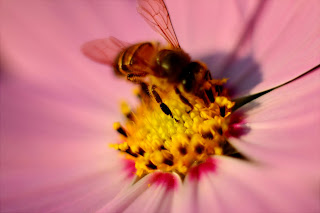The Benefits of Bee Pollen for Poor Blood Circulation and
Anemia :
Bee pollen, often referred to as a "superfood,"
has been used for centuries in various cultures for its medicinal properties.
Packed with essential nutrients, bee pollen is gaining popularity as a natural
remedy for a variety of health conditions, including poor blood circulation and
anemia. In this article, we will explore how bee pollen can improve blood
health and overall well-being.
What is Bee Pollen?
Bee pollen is a mixture of flower pollen, nectar, enzymes,
honey, wax, and bee secretions. Bees collect pollen from flowers, which they
use as a food source for the hive. For humans, bee pollen is harvested and
consumed as a dietary supplement. It is rich in proteins, amino acids, vitamins
(particularly B-complex and vitamin C), minerals like iron and magnesium, and
antioxidants. These nutrients are essential for maintaining healthy blood and
overall bodily functions.
Bee Pollen and Blood Health :
Blood is the lifeline of the body, carrying oxygen and
nutrients to every cell. Poor blood circulation and anemia are conditions that
can lead to fatigue, weakness, and a host of other health problems. Bee
pollen's nutrient-rich composition makes it an excellent supplement for
improving blood health.
Iron Content:
One of the primary causes of anemia is a deficiency in iron,
a mineral crucial for the production of hemoglobin in red blood cells.
Hemoglobin is responsible for transporting oxygen throughout the body. Bee
pollen contains a significant amount of iron, making it beneficial for
individuals with anemia or those at risk of developing the condition. Regular
consumption of bee pollen can help increase iron levels, thereby improving
hemoglobin production and oxygen transport.
Rich in B-Vitamins:
Bee pollen is an excellent source of B-complex vitamins,
particularly vitamin B12 and folic acid, both of which are essential for red
blood cell formation and overall blood health. Vitamin B12 deficiency can lead
to pernicious anemia, a condition where the body cannot produce enough healthy
red blood cells. Folic acid is also vital for the production and maintenance of
new cells, especially during pregnancy. Including bee pollen in the diet can
help prevent deficiencies in these crucial vitamins, supporting better blood
health.
Antioxidant Properties:
The antioxidants in bee pollen, such as flavonoids and
carotenoids, help protect the blood cells from oxidative stress and damage.
Oxidative stress can lead to various blood-related disorders, including the
degradation of red blood cells. By consuming bee pollen, individuals can
enhance their body's ability to fight off oxidative damage, promoting healthier
blood circulation.
Improving Circulation:
How to Incorporate Bee Pollen into Your Diet :
Bee pollen can be consumed in various ways, making it easy
to incorporate into your daily routine. It can be added to smoothies, yogurt,
oatmeal, or even sprinkled over salads. Start with a small amount, such as half
a teaspoon, and gradually increase the dosage as your body adjusts. It's
important to note that while bee pollen is generally safe, individuals with
allergies to pollen or bee products should consult with a healthcare provider
before consuming it.
Conclusion :
Bee pollen is a nutrient-dense supplement that offers
numerous health benefits, particularly for those with poor blood circulation
and anemia. Its rich content of iron, B-vitamins, and antioxidants makes it a
valuable addition to a balanced diet. By improving blood health, bee pollen can
help boost energy levels, enhance oxygen transport, and support overall
well-being. As with any supplement, it's essential to use it in moderation and
consult with a healthcare professional, especially if you have underlying
health conditions.


Comments
Post a Comment